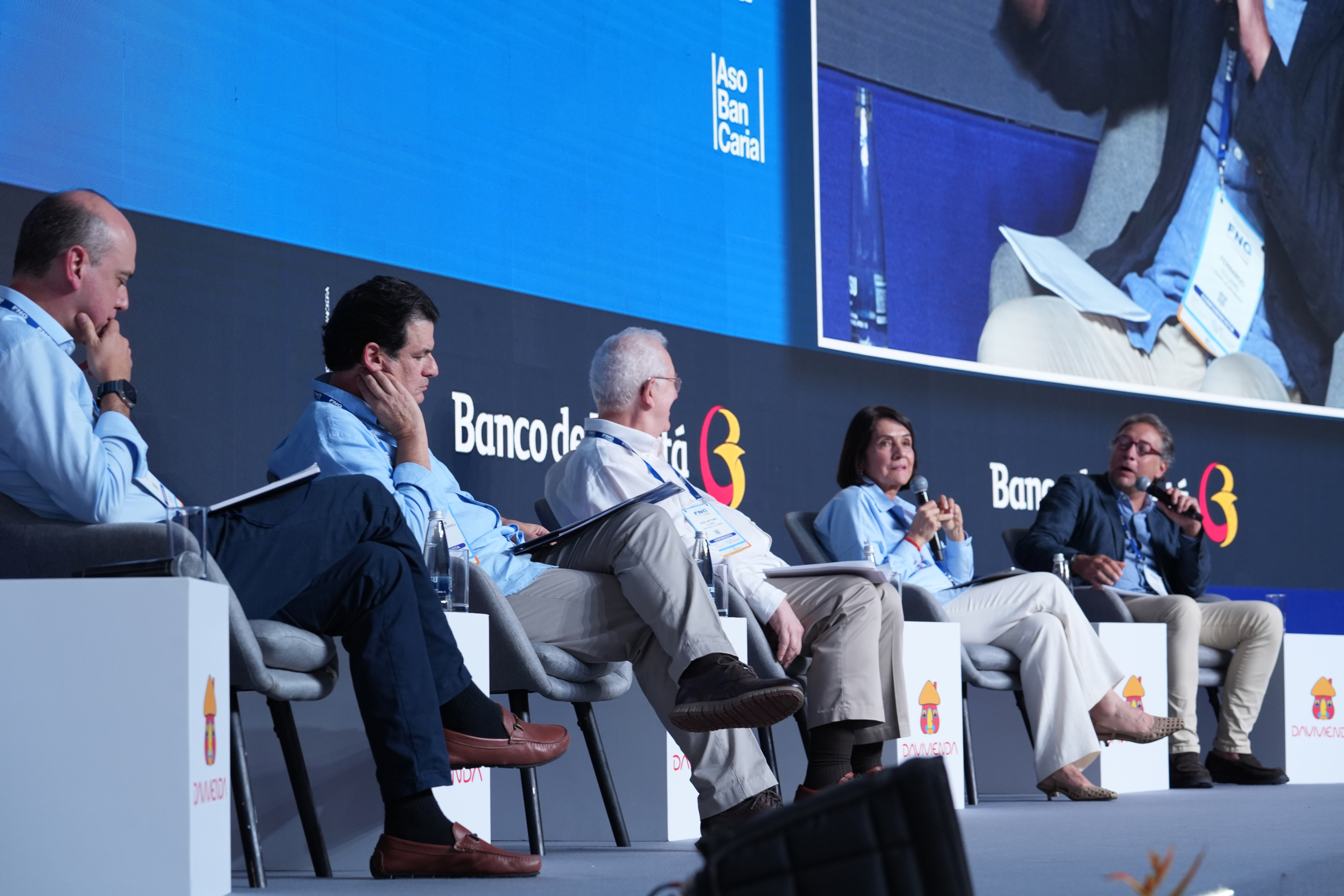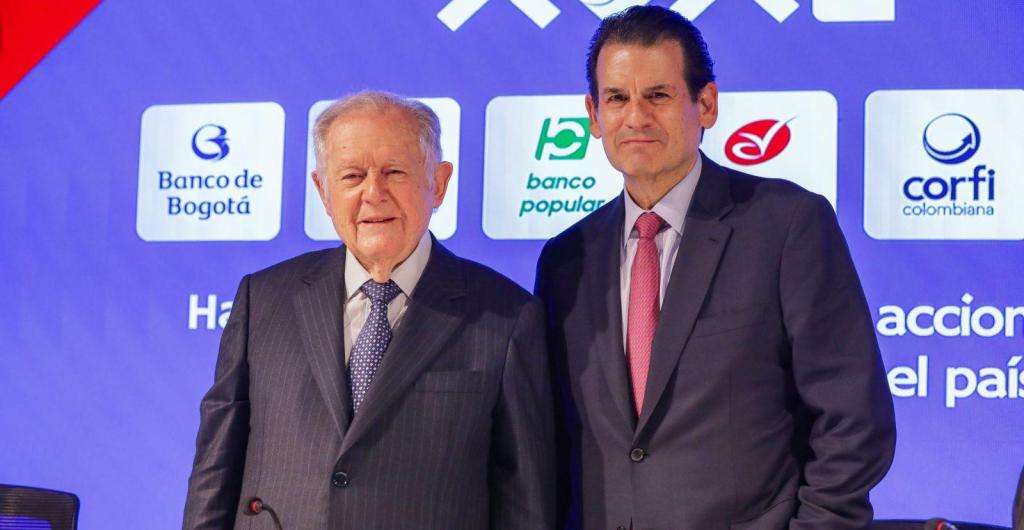"Trust is the value that needs to be recovered; it is the beginning of everything else": Luis Carlos Sarmiento Gutiérrez

At the 59th Banking Convention , Luis Carlos Sarmiento Gutiérrez, Chairman of the Board of Directors of Grupo Aval, reviewed the country's financial situation. Sarmiento highlighted the growth of the economy, but insisted that it is not enough to overcome underdevelopment. In an interview with EL TIEMPO, he also discussed labor and the referendum.

During the Aval Group's board meeting. Photo: César Melgarejo/El Tiempo
Trust will always be the value that needs to be restored because it is the foundation of everything else. If there is trust, there is investment and growth. Trust is restored with legal certainty, physical security, stability, and investment, understanding that one of the things that worries me greatly is the budgetary inflexibility in Colombia.
What do you think about the consultation by decree, and where would the labor law have to be approved? Regarding the referendum, Congress had already spoken out. If it's legitimate to refer the referendum to the Constitutional Court so they can decide, everyone has the right to appeal to all possible solutions, and I have no problem with that. Regarding labor reform, I'm the first to want workers to have better conditions. The problem is that it has to be done within the context of the national reality , and if this will only represent additional costs for companies, we must consider what will happen to employment. But in companies—not the largest ones, but in medium-sized and small ones—it will surely drive them into greater informality.
Do you think the issuer should lower interest rates more quickly? Inflation fell 800 basis points, and in the meantime, the Central Bank lowered its rates by 400 basis points. Understanding that they want to anchor their inflation expectations and that the target is not being reached, but also siding with the business community, in the context of the national economy, I believe there would be room to compress the real interest rate somewhat.

The Voice of the Markets panel at Asobancaria. Photo: Asobancaria
First, as the issuer's rates fall, banks' cost of funds decreases slightly, allowing them to lend with margins that work for them. Second, this is because there has been very good cost control, and this has led to a slight expansion in margins, maintaining costs, and, on the other hand, the portfolio is performing better. This also has to do with the fact that it has at least started to grow again: 2.7 percent. While it's not enough, it's growth, and that gives people the ability to repay their loans. When all of the above is combined, they achieve better results. And it's not that the financial system is producing excellent results, but what has happened is that the number of banks with accumulated net losses as of April has been decreasing, and the banks are breathing again.
Is this sustainable in the long term or does it depend on the country's political circumstances and economic environment? If at least this growth is maintained, it's certainly sustainable. If there were to be a trade war with the United States, if rates in the country suddenly became less attractive for importing capital, and then the dollar soared and that affected imports, that would lead to more inflation. But, as we're going, it's sustainable.
How concerned are you about the economic situation? I'm deeply concerned because for this country to emerge from underdevelopment or become an emerging country in the next 15 to 20 years, it needs to grow consistently between 5 and 6 percent. We're not achieving that, and I don't think we can condemn the country to underdevelopment forever. It's a country that has all the potential, and the people have the power to emerge. We need the conditions to be right. I'm concerned about energy self-sufficiency, the inconsistency in the legal rules of the game, and physical security.

Luis Carlos Sarmiento Ángulo, with his son, Luis Carlos Sarmiento Gutiérrez. Photo: Néstor Gómez
The group is committed to going digital, to participating with the Bank of the Republic in the immediate payment system, to believing in and trying to get the rest of the people to believe in Bre-B, because it's the way to continue offering people arguments to enter the financial system.
What comes next is for people to not only be on the passive side; banks can't just be depositors. Then they have to bring them in so they can be offered credit.
eltiempo





